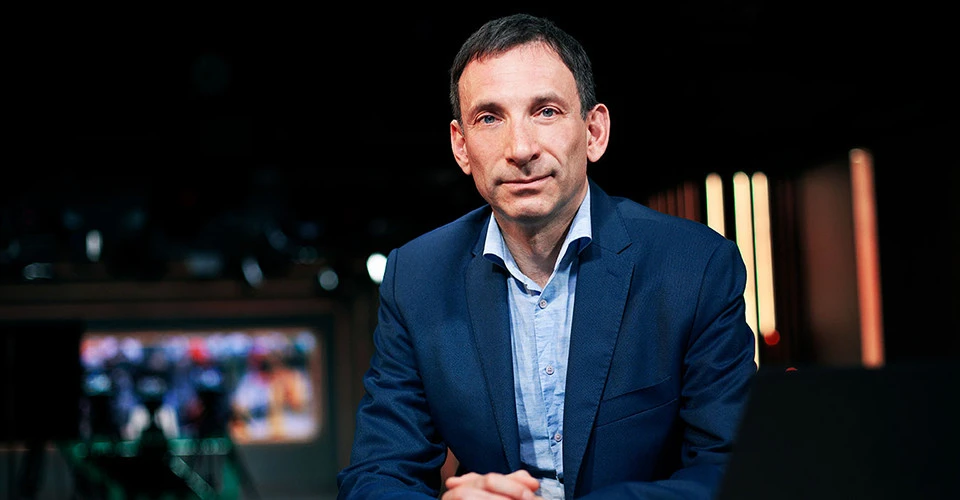
West's political will needed to prevent Russia-Ukraine war from turning into long-term positional warfare
The Commander-in-Chief of the Ukrainian Armed Forces, General Valeriy Zaluzhnyi, in his column for the Economist, emphasizes that Russia's war with Ukraine is entering a new and important stage. This is a positional struggle with static and exhausting battles, which, like in World War I, differ from the maneuver war of movement and speed
Zaluzhnyi believes that such a positional war could benefit Russia, allowing it to restore its military power and threaten not only the Ukrainian Armed Forces, but also the very existence of the Ukrainian state. In order to prevent this from happening, Zaluzhnyi outlines a program of military assistance to Ukraine from Western allies. First of all, it is air power, that is, gaining control of the skies by the Ukrainian army, both manned aircraft and drones, because now Russia maintains a significant advantage over Ukraine in the sky.
Another important priority is electronic warfare equipment. One more element of assistance is counter-battery warfare, which will help destroy enemy artillery. The fourth requirement for the Ukrainian Armed Forces pertains to mine-explosive technology, while the fifth priority involves augmenting reserves and potentially conducting training for reserve forces within other countries or within Ukraine itself. Russia could strike at training centers and, from this point of view, significantly limit the capabilities of the Ukrainian Armed Forces.
The Commander-in-Chief of the Ukrainian Armed Forces emphasizes that Ukraine's capabilities are quite obvious in terms of the fact that it has managed to liberate a large part of its territory from Russian occupation. But Russia should not be underestimated. Despite the fact that the enemy has suffered heavy losses and expended a lot of ammunition, it can have an advantage in weapons, equipment, missiles, and ammunition for a considerable time, and the Russian defense industry is increasing production despite unprecedented sanctions from the civilized world.
As Valeriy Zaluzhnyi emphasizes, positional warfare is a protracted war that carries huge risks for the Ukrainian Armed Forces and the state. If Ukraine wants to avoid this trap, it needs air superiority, much more advanced electronic warfare and counter-battery capabilities, new minefield technology, and the ability to acquire more reserves. It also needs modern command and control of the situation, so that decisions can be made faster than they have been until now.
So, this text essentially serves as a historical account summarizing the outcomes of the strenuous months of conflict between Russia and Ukraine. These were months marked by Russia's endeavors to capture Kyiv and the northern regions of Ukraine, alongside an offensive in the east and south. During this period, we witnessed the liberation of Kherson and a significant portion of the Kharkiv region from Russian occupation. Russia also made efforts to gain control over the entire territory of the Donetsk region, although without much success. These were months characterized by both Russian counteroffensive and Ukrainian one in response.
What the Commander-in-Chief of the Ukrainian Armed Forces is documenting appears to be self-evident to every reader of this significant article. It is the fixation of the Russian-Ukrainian front line. Despite all the attempts of the Russians to break through this line, it is gradually turning into a new line of contact before our eyes. And it can exist in this form for quite some time.
It's evident that there are indications pointing towards the potential for a protracted, low-intensity conflict, marked by possible missile and drone attacks by the Russian army on Ukrainian territory. Naturally, if Ukraine receives the full extent of the assistance discussed by the Commander-in-Chief of the Ukrainian Armed Forces, there may be prospects for future attempts to breach this front line. Similarly, we can envision Russia's endeavors to break through this line of contact in the future. Nevertheless, the present configuration of forces suggests that this line could serve as the point where the troops of both countries might be stationed for an extended and uncertain period.
This raises questions not only for the military. It raises questions for politicians, especially Western politicians. To what extent will they be ready to help Ukraine for a long time in order to create conditions for the military restoration of Ukraine's territorial integrity in the future, as mentioned by the Commander-in-Chief of the Ukrainian Armed Forces, Valeriy Zaluzhnyi, in his text?
Will the idea of a political settlement of the situation in the Russian-Ukrainian war arise in a way that would at least make it impossible for Russia to break through the contact line and occupy new Ukrainian regions, to put an end to missile and drone strikes on the territory of Ukraine, to new attempts to destroy the country's infrastructure, which, of course, at some point may call into question the survival of the Ukrainian state as such?
Of course, the mechanism of political settlement of the situation is quite well known. These are security guarantees for Ukraine, invitation of the country to join NATO even before any model of political settlement of relations between Ukraine and Russia is reached, and informing Russia through such political decisions that Ukraine will never become a prey of Russia.
Obviously, politicians and the military should have a common agenda. However, as I have repeatedly emphasized, the Russian-Ukrainian war cannot end on the battlefield for the simple reason that this war will not take place on the territory of the Russian Federation itself. This war has been, is and will be fought only on the internationally recognized territory of Ukraine. And therefore, the Ukrainian Armed Forces can only create conditions for a political solution to this situation, which has developed as a result of Russia's aggressive attack on Ukraine.
The prerequisites for such a political solution exist today. To ensure that it is implemented and that the Russian-Ukrainian war does not turn into a long-term positional war, which would mean the eventual victory of Vladimir Putin's tactics and strategy, the West needs political will, realism, and an awareness that a long-term positional war to destroy Ukraine will also lead to the globalization of the conflict between the West and the world of dictatorships, and this is all the more reason to prevent it. By saving Ukraine from exhaustion, the West is also saving itself.
About the author. Vitaliy Portnikov, journalist, winner of the Shevchenko National Prize of Ukraine.
The editors do not always share the opinions expressed by the blog authors.
- News













































